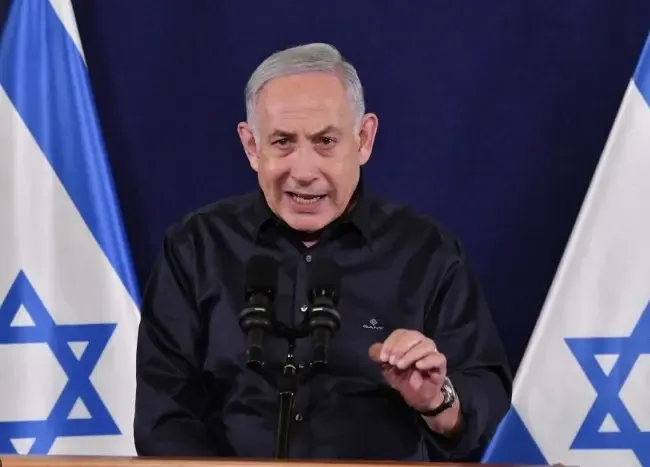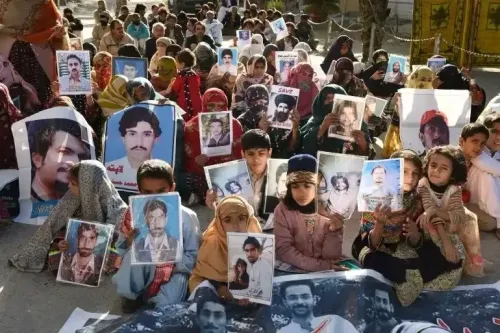Will Netanyahu Run for PM Again in Israel's 2026 Elections?

Synopsis
Key Takeaways
- Netanyahu announces his intention to run for the 2026 elections.
- He expresses confidence in winning another term.
- The Rafah border crossing remains closed for now.
- A ceasefire is currently in effect, with ongoing negotiations.
- Hostage situations are critical in the current climate.
Jerusalem, Oct 19 (NationPress) Israeli Prime Minister Benjamin Netanyahu has declared his intention to run for office once more in the 2026 parliamentary elections.
This announcement was made during an interview with Israel's Channel 14 on Saturday (local time), where he was queried about his plans for another term. "Yes," he affirmed.
When asked about his expectations for victory, Netanyahu replied, "Yes."
In the previous Israeli elections held in 2022, Netanyahu’s right-wing Likud party secured 32 seats, and he received recommendations from 64 members of the 120-seat Knesset to be eligible to form a government, according to Xinhua news agency.
He was sworn in as prime minister in December of that year and has been leading a far-right coalition since then.
Next week, Netanyahu will celebrate his 76th birthday. He previously served as Israel's prime minister from 1996 to 1999 and again from 2009 to 2021, before being removed from power in June 2021 by a centrist coalition led by Yair Lapid and Naftali Bennett.
In another development, Netanyahu's office announced that the Rafah border crossing between Egypt and the Gaza Strip will remain closed until further notice.
The future opening will depend on how Hamas fulfills its commitments regarding the return of deceased hostages and the adherence to the agreed framework, according to a statement from the Israeli Prime Minister's Office.
Earlier today, the Palestinian Embassy in Cairo announced the Rafah border crossing will reopen on Monday to allow Palestinians living in Egypt to return to Gaza.
The Israel Defense Forces confirmed on Saturday that they had received the body of the 10th deceased Israeli hostage from Hamas, in addition to the remaining 20 living hostages.
A ceasefire, facilitated by Egypt, Qatar, Turkey, and the United States, came into effect on Oct. 10. The first phase of this agreement involves the exchange of prisoners, the entry of humanitarian aid into Gaza, and a partial withdrawal of Israeli forces.
As part of the agreement, Hamas is required to return the bodies of 18 more deceased Israeli hostages.









